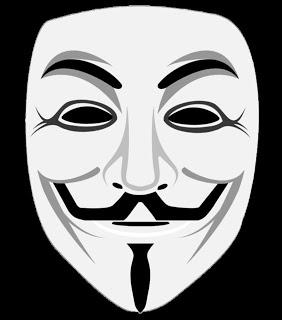Fast forward 150 years to 1525 and William Tyndale's first translations of the bible, based on the Greek and Hebrew texts, and inspired by Martin Luther's German translations, appeared in Cologne. The Catholic church didn't take kindly to his translation of what they had previously called the 'church' (Gr: ekklesia) into the more inclusive term, 'congregation'. Likewise, they had a problem with the replacement of the word 'charity' with 'love'. This translation seemed to support Luther and Wycliffe's perspectives that religion belongs with the people and places emphasis on the masses rather than the wealthy clerical elite.
Tyndale's translations of the Hebrew verse seemed to recognize the language as poetic, maintaining a rhythmic parallelism. Here is an example of the difference in language between the Tyndale translation and the Roman Catholic Jerusalem Bible of 1966 (as referenced in David Daniell's introduction to the translation from 1995):
Tyndale: 'Hearken unto me my people, and turn your ears to me my folk'
RCJB 1966: 'Pay attention to me, you peoples/ Listen to me, you nations'
Isaiah 51:4
In 1536 Tyndale was arrested and sentenced to death for heresy. He was strangled and burned at the stake. His friend, John Rogers, had Tyndale's New Testament and portions of the Old Testament which he had completed, published along with translations of the remaining chapters of the Bible in the year after his death. The vast majority of what would go on to become the King James Bible was taken from Tyndale's translation which included the creation of these popular terms:
eat, drink and be merry
the powers that be
the salt of the earth
let there be light
fight the good fight
Some scholars believe his influence on the English language to be greater than that of Shakespeare, in part due to the King James Bible being the best-selling book in the world (although the other James is more likely to out-sell it on Amazon these days).
There is no doubt that the Bible has had an enormous influence on the English language and our culture. Despite its many translations, believers tend to accept the authority of its words. The prestige of the Bible holds enormous sway with millions of people. And this reminds me of the questions I have around the impact of persona, authority and reputation in poetry. Consider the following lines:
A woman's life is her ownuntil it is taken awayby a first particular cry.
Where our bodies would meet sentence deep
A paragraph never complete
There, in those derelict places under the moor,they roved their last stronghold, watchingas we went from our mothers to play. Your clear eye is the one absolutely beautiful thing.
I want to fill it with color and ducks,
The zoo of the new
Peat-scented and brow like scoured graniteHe wakes meA stone rolling back to the loch
I'm not going to attribute these lines to their authors. If you wish to, you can copy the text into Google and find out the sources. But it's worth asking yourself how you feel about these lines which, admittedly, are only excerpts and don't give the full gist of the work in question. What if I told you that I had written all of these lines for this blog just now? Alternatively, what if these were all verses from an anthology of the most esteemed and respected poets of our time? Do these facts change how you respond to the words?
As a poet I'm particulary interested in how I feel about the attachment of my name to my own work. It's a question that's particulary pertinent given the recent plagiarism scandals. Would I be happy to share my work if nobody knew my name? Some of the most well known poetry passed down to us is anonymous, Beowulf being a prime example. This is an example of a poem which has been passed down in the oral tradition and so it belongs more to the people than the author/s. Which takes me back to the Bible and those heretical ideas around congretation and the content which should be read by the ordinary people, not just the privileged few.
As a reader, I don't care who wrote the poem as long as it speaks to me. The attraction of a familiar name might make choosing poetry a simpler process, and it seems to work for publishers wishing to sell books, but it's the words which really sell the books. If I pick up a book of poetry from the library, I open it at random and read a few verses. Then I flick through and read a few more verses. If there's nothing pulling me in at that point, I put the book back. Because I don't have time to read all the poetry in the library, I want to read the poetry which speaks to me.
When someone picks up the Bible for inspiration, I doubt they often consider who wrote or translated the words. Rather, they are interested in the words themselves and how they personally relate to their meaning. There is a lot of personality in contemporary poetry, more so if you consider the performed word. Editors expect us to purchase the work of the select few whose work is considered to be 'the best'. But they must excuse us if we choose to eschew these words in favour of those we happen across in a charity shop or while browsing the net. Because poetry is for the congregation and we don't much care where the poet studied or which prizes they have won. What we care about is the page under our nose.
Thus ends the rant,
A Protestant Poet

